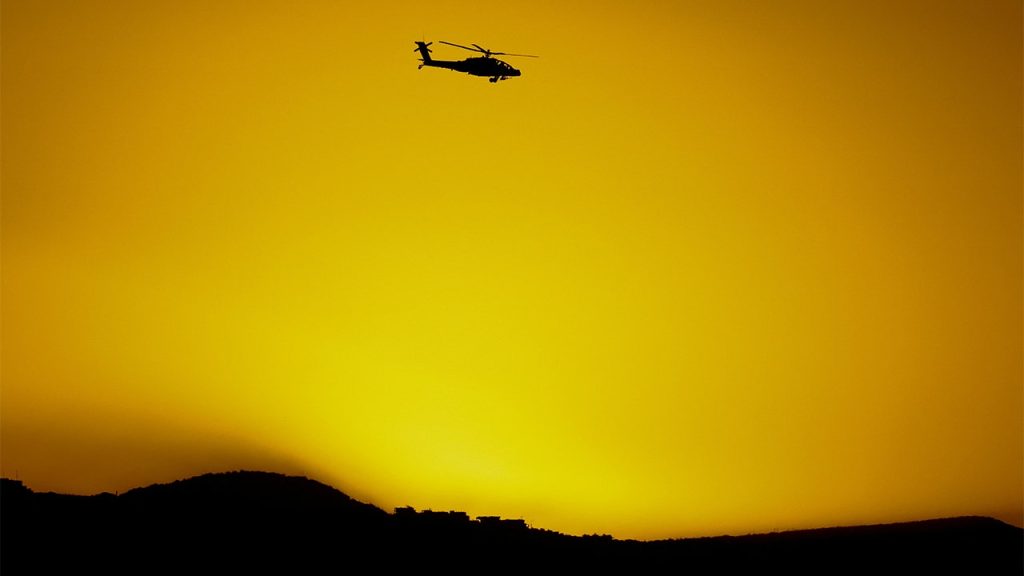Hezbollah launched a barrage of rockets into northern Israel, including near the city of Haifa, on Saturday after the Israeli military said more than 100 projectiles crossed into Israel from Lebanon. The Lebanese terror group said its “large salvo” of rockets hit a military base east of Haifa. The Israel Defense Forces said approximately 180 projectiles were fired by Hezbollah, which has vowed to escalate its war against Israel after IDF strikes killed senior Hezbollah leaders. At least five people suffered shrapnel injuries in Kiryat Ata, in the city of Haifa, the emergency service provider Magen David Adom said. A rocket reportedly damaged a three-story building and burned two cars in Kiryat Ata. The attacks followed after a UAV was launched towards Israeli Prime Minister Benjamin Netanyahu’s home in the coastal city of Caesarea. Netanyahu and his wife were not home when the incident happened, his spokesperson told Fox News. No injuries were reported in the incident.
Iran-backed Hezbollah has stepped up its attacks on Israel in recent weeks after the IDF successfully sabotaged the terror group’s electronic communications and killed its senior leaders, including Sayyed Hassan Nasrallah and his replacement. Israel struck another great blow against Iran’s proxy groups with the killing of Hamas leader Yahya Sinwar. Hezbollah and Hamas, along with other proxy groups, comprise an “Axis of Resistance” that Iran has used to oppose Israel and the U.S. and wield power in the Middle East for decades. Speaking on Saturday, Iranian Supreme Leader Ayatollah Ali Khamenei said Sinwar’s death would not stop the “Axis of Resistance” and that Hamas would live on. Sinwar, the architect of Hamas’ Oct. 7, 2023, attack on Israel that triggered the war in Gaza, was killed on Wednesday in a gunfight with Israeli forces after a year-long manhunt, and his death was announced on Thursday.
Iran-backed Hezbollah has stepped up its attacks on Israel in recent weeks after the IDF successfully sabotaged the terror group’s electronic communications and killed its senior leaders, including Sayyed Hassan Nasrallah and his replacement. Israel struck another great blow against Iran’s proxy groups this week with the killing of Hamas leader Yahya Sinwar. Hezbollah and Hamas, along with other proxy groups, comprise an “Axis of Resistance” that Iran has used to oppose Israel and the U.S. and wield power in the Middle East for decades. Speaking on Saturday, Iranian Supreme Leader Ayatollah Ali Khamenei said Sinwar’s death would not stop the “Axis of Resistance” and that Hamas would live on. Sinwar, the architect of Hamas’ Oct. 7, 2023, attack on Israel that triggered the war in Gaza, was killed on Wednesday in a gunfight with Israeli forces after a year-long manhunt, and his death was announced on Thursday.
Khamenei paid tribute to Sinwar, saying he was a shining face of resistance and struggle against the enemy. Despite his death, Khamenei emphasized that the “Axis of Resistance” would continue to advance, and Hamas would remain alive. He expressed his unwavering support for the fighters and combatants, vowing to stand by their side with God’s grace and help. The killing of Sinwar was seen as a significant blow to the leadership of Hamas and the broader “Axis of Resistance” in their ongoing conflict against Israel and the United States. However, Khamenei’s statement indicated that the groups would not be deterred by Sinwar’s death and would continue their resistance efforts.
The situation in the Middle East remains tense as Hezbollah escalates its attacks on Israel, prompting a robust response from the IDF. The killing of senior leaders from Hezbollah and Hamas has raised tensions in the region, leading to retaliatory actions. The support of Iran for these proxy groups has further added to the complexity of the situation, with the “Axis of Resistance” continuing to oppose Israel and the U.S. Despite the loss of key figures like Sinwar, the groups involved in the conflict show no signs of backing down, as indicated by Khamenei’s statement. The ongoing violence underscores the deep-rooted animosity and geopolitical rivalries that persist in the region, with significant implications for stability and peace in the Middle East.













